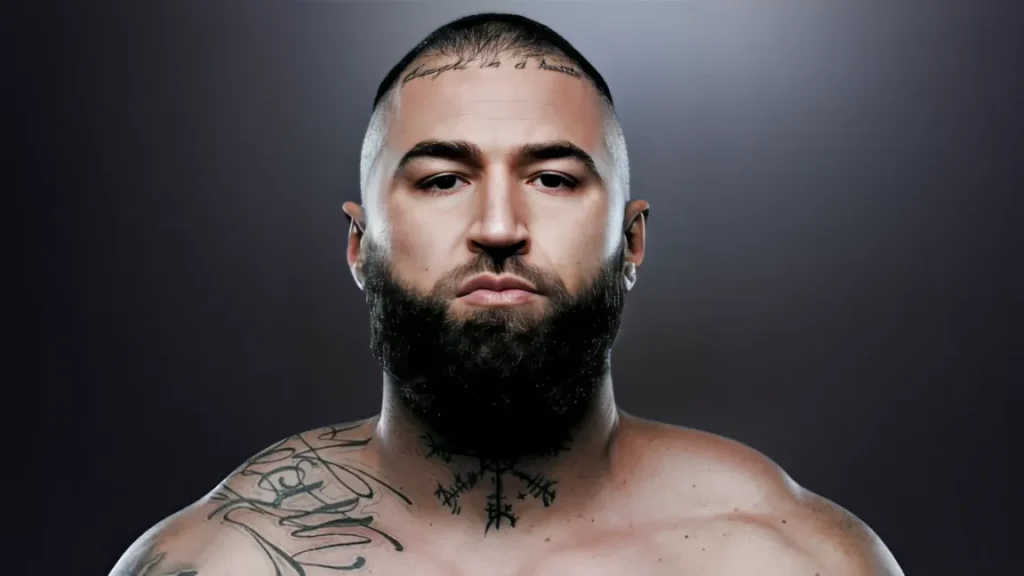Early Days in Music
Spanian’s journey into music was gradual, beginning during his tumultuous years navigating crime and incarceration. Hip-hop had always been a part of his environment, growing up in inner-city Sydney, where street culture and rap music were intertwined. Though he engaged with rap informally during his younger years, it wasn’t until later in his life that Spanian fully committed to it as an artistic outlet and potential career. His early rap content was shared locally, where he gained respect among peers for his lyrical skill and authentic delivery, but it wasn’t widely circulated until the advent of social media.
Emergence as an Artist
After spending several years in and out of prison, Spanian began to rethink his future. It was during this period of personal reflection that he turned to music as a serious pursuit, seeing it not only as a creative outlet but as a way to share his story and connect with others who had lived similar lives. His content reflected the real-life struggles of poverty, addiction, violence, and survival—topics often overlooked in mainstream Australian music but deeply relatable to many in marginalized communities.
His style is deeply influenced by his experiences, blending street narrative with unapologetically harsh truths about the life he once led. In his tracks, Spanian addresses topics like drug addiction, crime, time spent in jail, and the realities of living in the underbelly of society. His lyrics carry a rawness and authenticity that attracted a specific audience, particularly people from similar urban environments who could relate to his experiences.
Breakthrough and Rise to Fame
Spanian’s breakthrough came when he started sharing his music and perspectives online, particularly through platforms like YouTube, Instagram, and Facebook. His candid social media videos, where he would talk openly about crime, prison, and street life, began to gain traction. Fans were drawn to his unfiltered storytelling, which felt raw and real in a way that mainstream media often doesn’t portray. This authenticity set him apart from many other Australian rappers, allowing him to carve out a unique space in the local hip-hop scene.
In 2020, Spanian released his debut album, “The Pain Report,” a project that was both a critical and commercial success within the underground hip-hop scene. The album showcased Spanian’s ability to turn personal hardship into powerful lyrical content, addressing everything from his life on the streets to his time in prison. The production, which combined gritty beats with atmospheric melodies, complemented Spanian’s intense vocal delivery, resulting in a project that resonated with a wide audience.
His singles, such as “Reality Rap” and “No Mercy,” further elevated his status as a voice of the streets. These songs, marked by their brutally honest lyrics and vivid storytelling, garnered millions of streams on platforms like Spotify and YouTube.
The Role of Social Media
One of the major turning points in Spanian’s career was his use of social media. Beyond just promoting his music, he began to share videos where he discussed his past life, offering candid insights into crime, prison culture, and how the street mentality operates. His raw honesty and willingness to speak about taboo topics made him a cult figure online. Spanian’s online presence grew exponentially, and his fanbase expanded to include not only hip-hop enthusiasts but also people fascinated by his life story and the lessons he imparted.
His video series, “Street Gospel,” became especially popular, where he would discuss various aspects of street life, providing insights into the mindset of criminals, addiction, and the challenges faced by people trying to escape that world. This content further solidified Spanian’s role as a cultural commentator in Australia, not just a rapper. He became a voice for people in Australia’s working-class and marginalized communities, using his platform to discuss issues that are often ignored in the mainstream conversation.
Expanding Influence
As Spanian’s popularity grew, so did his influence. He began to collaborate with other Australian artists in the hip-hop scene, further establishing himself as a prominent figure. He also started appearing on podcasts, interviews, and media platforms, where he would speak not only about his music but also about his life experiences and views on societal issues, including crime, the justice system, and the struggles of young men growing up in disadvantaged environments.
Spanian’s presence was particularly strong in Australia’s independent music scene, where he didn’t conform to mainstream expectations but instead embraced his identity as an outsider who had something real to say. This helped him cultivate a devoted following, especially among listeners who valued authenticity over commercial appeal.

